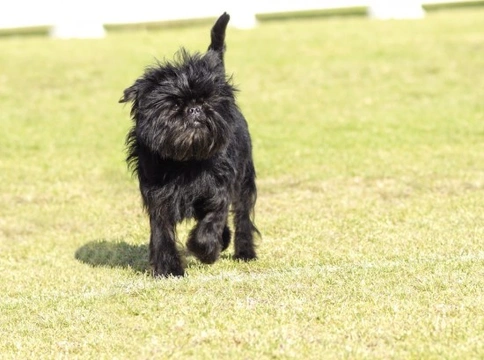
Common Health Issues Seen in Affenpinschers
Affenpinschers are lovely looking little characters but they do boast living slightly lower lifespans than many other small dog breeds. On average, these lovely and lively little dogs live anything from 11 to 12 years. On the whole they are considered to be healthy characters although they are prone to suffering fractures due to their small size. This is why they need to handled gently when being picked up.
However, like many pure breeds, the Affenpinscher does tend to suffer from certain genetic disorders as well as a few acquired condition which both existing and potential owners would need to know about. The earlier a condition is diagnosed and treated, the better the outcome and it also means dogs are made more comfortable sooner rather than later avoiding any unnecessary pain and discomfort.
Patellar Luxation
This is a condition that affects a dog's kneecaps where they become dislocated or slightly out of position. Although it is an hereditary condition that Affenpinschers often suffer from, trauma and injury can also cause the condition . If the condition is very severe, a vet would recommend surgery.
Legg-Calve-Perthes Disease
Legg-Perthes disease affects the hip joint and is caused by an inadequate amount of blood reaching it which results in the dog's femur bone weakening eventually causing it to collapse due to the cartilage around the joint becoming malformed or cracked. Clinical signs there is a problem are quite obvious and includes limping, pain and discomfort. Vets typically take X-rays to establish whether a dog is suffering from the condition before recommending the right sort of treatment or therapy.
Oedema, Lethal Congenital
This is a cardiovascular disorder where too much fluid builds up in a dog's body when they are first born. The problem first starts when newborn pups are still in their mother's uterus.
Von Willebrand's
Other names for this condition are Angiohemophilia, Pseudohemophilia and Vascular hemophilia. It is a blood clotting disorder which can lead to excessive and uncontrollable bleeding both internally and externally.
Patent Ductus Arteriosus
This is a congenital disorder which is a heart defect that affects many breeds including Affenpinschers. Vets would typically recommend surgery even on very young puppies although if there is evidence of left shunting PDA, surgery is not an option.
Oligodontia
A lot of small dogs have less teeth than normal due to the size of their mouths. Affenpinschers often have missing teeth because of they too boast smaller mouths.
Cleft Palate
Some Affenpinschers also suffer from cleft palates which is an abnormal opening that's situated in the roof of their mouths. It is a congenital disorder that vets would surgically correct once a puppy is over 4 months old.
Hot Weather Warning
In hotter weather Affenpinschers can suffer a little due to their shorter and quite stubby noses which makes it that much harder for them to breath freely. It's important to keep them in a cooler environment during the summer to prevent them from overheating which could lead to heatstroke.
Heatstroke can affect any dog, but is always a very serious condition that requires immediate medical attention. Once the signs of heat stroke are detected, there is little time before serious damage - or even death - can occur.
Dogs cannot sweat through skin like humans can, and release excess heat through panting, their nose and their pads of their feet. If the dog is unable to do this, the internal body temperature will rise and at 106 degrees, irreparable damage will occur to the dog's organs and internal systems.
Conclusion
If you are thinking about getting a puppy, it's really important to contact a reputable breeder who has a well planned breeding programme in place and who only uses healthy dogs which reduces the chances of their litters developing an hereditary health disorder. However, it is worth bearing in mind that "bad genes" are capable of skipping several generations, which means there is never a guarantee that an Affenpinscher would not develop a condition during the course of their lives.



